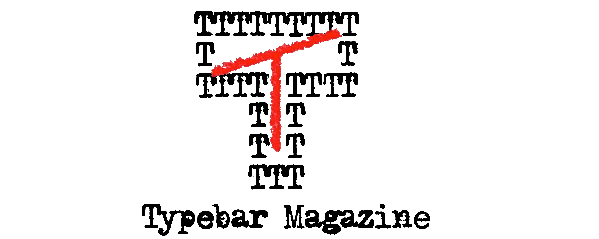By Connor Wroe Southard
A full decade ago, in March of 2015, an anonymous letter to Choire Sicha’s “The Concessionist” advice column at The Awl perfectly captured the zeitgeist of mid-2010s digital media culture. I’m not sure any Millennial novelist has yet done such an impeccable job rendering what was in the air of literary-ish Brooklyn (and in the media industry more broadly) back then. In fairness to fiction writers of my generation, it’s not easy to conjure something this evocative out of the ether:
BuzzFeed is the most successful media company of our time. BuzzFeed is the future of the media business. BuzzFeed is the most widely recognized media brand among young people and will inevitably eclipse the major media organizations and one day become a super-hegemonic media power the likes of which we’ve never seen. They’re past being just a website/media organization. They’re a cultural institution. BuzzFeed is so powerful they can make the president use a selfie stick. Digiday, Adweek, and every other media rag writes about BuzzFeed’s new innovations every single day. And BuzzFeed is in perpetual growth mode. They hardly ever fire anyone (save for an unlucky few) and are ALWAYS making huge hires.
Reading the “I Hate Myself Because I Don’t Work at BuzzFeed” letter in 2025 feels like watching black-and-white clips of teenaged Baby Boomers insisting Beatlemania would never end. There’s a certain kind of nostalgia that isn’t so much warm and fuzzy as it is a memento mori; the Ghost of Zeitgeist Past come to lament. All scenes are impermanent. Just ask any of the influencers reeling from the whiplash of the TikTok-ban-haha-just-kidding.
While the missive is easy to mock–and I’m sure whoever wrote this cri de coeur has had occasion to laugh at themselves many times over the past decade–the letter made such an impression back then because it said what quite a few New Media aspirants were too embarrassed to say: So many people a decade ago would’ve done anything to work for BuzzFeed.
BuzzFeed was among the most prominent cultural brands in the early 2010s–and the hottest topic to write about on the media beat. In 2014, an internal New York Times innovation report leaked and revealed that The Gray Lady itself saw BuzzFeed as a threat to its business model. With 10 years of hindsight, this fear is both quaint and laughable. But back then, BuzzFeed content dominated everyone’s Twitter and Facebook feeds, and it was impossible not to feel the heat of the company’s meteoric rise. Laudatory profiles appeared every few months, many with fawning titles such as Does BuzzFeed Know the Secret from New York Magazine or BuzzFeed Shares the Secret to Its Video Success from Adweek. In retrospect, these pieces are blinkered, credulous, and laced with the wishful thinking of, yes, writers who may themselves have yearned to work at BuzzFeed. The Adweek piece is particularly ominous in light of knowing just how calamitous the “pivot to video” ultimately was for the industry. In 2015, it hadn’t yet sunk in that Facebook and Google really called the shots.
There was a sense in those days that, much as the media landscape might have sucked– much as being a writer has always sucked–there was a path you could take that actually led somewhere. Maybe you didn’t yet have a job at BuzzFeed or Gawker or Vice, but these places served as the green light blinking across the darkened waters of writerly toil. If you freelanced enough for the right places, maybe took some suboptimal staff jobs, attended the right parties, and–perhaps most importantly of all, in what is now the sepia-toned heyday of the morbidly Musk-ified site–built your brand on Twitter and got the right followers, you might one day be able to afford your own studio in whichever part of Brooklyn was on the come-up at the moment. You could even dream of a book deal. You could dream that book deals were something worth dreaming about.
God bless those who were wise enough even before the Facebook rugpull to shake us awake. In his role as founder and all-around doyen of The Awl, as well as beforehand at Gawker and later as editor of New York Times Styles, Choire Sicha always did a splendid job making his readers feel that they were benefiting from the wisdom of a man who had been around many blocks. His reply to the letter-writer is full of gems, including this sage insight:
Your idea about “media life” or whatever is so beyond. You’ve lost all perspective. There is no such thing. Like if you see five people on Twitter who hang out together once in a while…TRUST ME, that “scene” will pass. You need to go hang out with some bond traders or cab drivers or dog walkers.
But this is not really your fault. Financial insecurity, weird social media side effects, and the complete lack of such a thing as “the second job” in web publishing conspire to RUIN MINDS. Seriously, ask yourself: where do web writers go next, hmm? How many times have you seen someone make a non-lateral job move? Maybe five times? Ask any Gawker Media returnee! Or ask anyone who’s been writing for Gawker for four+ years! Where do BuzzFeed writers go next? WHO KNOWS! We may literally never find out.
We never did find out, with perhaps a few exceptions. Like Sicha, many of those exceptions eventually landed at The New York Times, which has since defeated every digital-first challenger and solidified its role as The One Place That Reliably Employs Many Accomplished Writers And Pays Them Well. Even a decade ago, Sicha understood that what was then New Media (now not quite Old Media–Middle-Aged Media?) was not financially sound, that the whole thing was bound to collapse at some point. And collapse it did. BuzzFeed is now a shell of itself, replacing seasoned journalists with a steady flow of slop. Founder Jonah Peretti is scrambling to offload whatever he can, having just sold the studio behind YouTube hit Hot Ones for $82.5 million to pay off debts, with yet more layoffs having been recently announced. If that isn’t bad enough, anyone still paying attention to BuzzFeed these days will have to risk exposure to a clearly doomed social network (“BF Island”? Seriously?). A possible BuzzFeed takeover by Trumpworld agitator Vivek Ramaswamy would be the final insult.
All of which is to say that, in 2025, it often seems as if you either work for the Times or you have a Substack. If that sounds a little glib, I’ll give a shout out to places like Defector (you guys do great work!), Flaming Hydra, Aftermath, and anyone else making a go of it. “Making a go” is of course about the most encouraging thing that could be said. Stability and certainty aren’t on the horizon now, and as Sicha was at pains to point out, they weren’t ten years ago, either.
What hits me hardest in Sicha’s passage is the prophecy about the transience of scenes. I lived my own version of Hating Myself for Not Working at Buzzfeed, or at least hating myself for not feeling successful enough as a writer, which is what the letter is really about. I moved to New York City in the spring of 2016. I turned 26 later that year. I didn’t have aspirations of being a staff writer anywhere, per se, but I was getting into freelancing–my first paid piece was actually with The Awl, home of many first pieces by writers of my generation. I went to media-adjacent parties. I got to know some people who became successful podcasters, some people who became successful writers, some people who got cancelled. Part of me wants to punch up this paragraph with more color, add in more proper nouns, but I find myself getting bored of my own history.
It all did lead somewhere, I guess. I’m writing this piece, which means I still write, which means–well, that I still write. And now we enter tricky territory for an essay about how things were bad in the past and have only gotten worse. One thing 2025 and 2015 have in common is that there are endless incentives to get histrionic so you can get attention on the Internet. The temptation here is to write another dirge about the state of media and the writing life. Those pieces still do well, or as well as anything does now that our social media overlords have suppressed the sharing of links to articles, but I’m not sure any of us need to read another one.
Mourning may be inevitable, if you dreamed of a life where stability and certainty met the prestige and romance of Being A Writer. I get it. But Choire Sicha was right ten years ago in more ways than perhaps he knew. The type of fretting on display in the “I Hate Myself Because I Don’t Work at Buzzfeed” letter is, in the end, even worse than a waste of time or a way to drive yourself insane. To hate yourself because you aren’t riding the zeitgeist in just the right way is to give up the power you have to decide what meaning you give to your own work.
I’ve always found it odd and sad that writers eagerly surrender so much of that power. We know that media and publishing are broken; we say it to each other over and over, in public and private. And yet we still measure ourselves by the prestige of outlets and imprints. It would be one thing if this were only a matter of money, because money is a good reason to compromise. (Lord knows I’ve done it, as have you.) But writers have a tendency to let glamor and affirmation become a matter of identity. Notice that nowhere does the letter-writer of ten years ago say that the reason they wish they worked at Buzzfeed was because the pay was so much better and would let them make a downpayment on a house. Their anguish was about how they saw themselves, not the size of their bank account. That stark admission was a service to every anxious writer (so, every writer) then and now. Thank you, brave letter-writer, for helping us see exactly how defeating it is to stake your self-worth on what kind of writer you get marked as by market forces–or even worse, the fickle and fleeting perceptions of the Twitterati, most of whom are now long forgotten. The market, after all, will always ultimately be hostile to the earnest aspirations of serious writing, even if you do manage to sometimes trick the paymasters into giving you a bag.
What do we do, then, if we can’t measure ourselves by whether we work at Buzzfeed–or whether we get published by one of the various slowly imploding prestige imprints of the major New York houses, or whatever might be the green light across the water of the moment? That’s the great unanswered question for writers in 2025. I have a few thoughts, which tend to coalesce around the notion that writers need to get better at validating one another in good, expert faith, and treating sources of money solely as sources of money. Or maybe, as Choire Sicha urged back then, we simply need to “stop drop and roll [ourselves] back to sanity.” What I can say for sure is that none of us currently hate ourselves for not working at Buzzfeed. Even if that change is a byproduct of other depressing realities, it’s a good reminder that this too shall pass. And hey, maybe one day someone will do a retrospective of it for a plucky online magazine.





